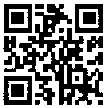I was delighted to be back in examiner training mode - it has been a while. New materials for 2011 to master - some late nights before I legged it to Indonesia last week - and a new city/venue to create a 'cell' in. Hopefully, not sleepers for long.
 |
| Discussing assessment - stand your ground |
It is always reassuring to venture into a school which identifies itself as British - map on the wall, a London bus picture somewhere, proper (Yeah, proper!) exam info and prep classes scheduled. A graded readers programme obvious, and even pictures of the school owner putting his own carpet down. Oh Joy! A fellow traveller!
 |
| Peer practice - take it seriously |
I was surprised that this had not been suggested before though - after all, ESOL has been the market leader in assessment since whenever, right?! By tackling assessment first (which everyone always assumes is the 'bigger' or more professionally demanding aspect of the examiner's job) we get the serious hats on early. Everyone can impress the crap out of their peers with lofty discourse critiques, isolating grammatical nuances, announcing their experience with particular nationalities' pronunciation etc. Thank you for sharing, everyone! Now, let's look at the assessment criteria and see where everything you just said can be found...Oh dear.
 |
| Justify your assessment - refer criteria |
Clearly, watching a variety of examiners deliver the rubric to the letter, on time, neutrally, and professionally is a benefit. Trainees will have taken in the fact that regardless of the materials used, abilities of the candidates, distractions, personal preferences, each speaking test took approximately the same amount of time, each candidate had an equal opportunity and their was no horseplay. Part two of training = replicate that.
When you have no idea of the tone you are supposed to be presenting, I think it is awfully hard for even experienced teachers to switch into examiner role. As teachers, our natural default setting is "help". As assessors, it is perhaps counter-intuitive to focus on candidates abilities rather than the faults they may or may not demonstrate.
In context here in Japan, candidates do not get credit for "being ambitious" - rather, assessment tends to focus on any loss of control or inaccuracies. Net result = lame, middle of the road and 'safe' performances. Getting this single point across to my speaking test examiners is crucial. As soon as we can focus on ambition, development, familiar vs abstract, clarity to the untrained listener eg my mum...we are getting there.
Lady and gentlemen...Osaka is GO : - )


No comments:
Post a Comment
By all means leave your comments - please do not be offensive, abusive, or rude. We ask you to sign your comment as well, please.